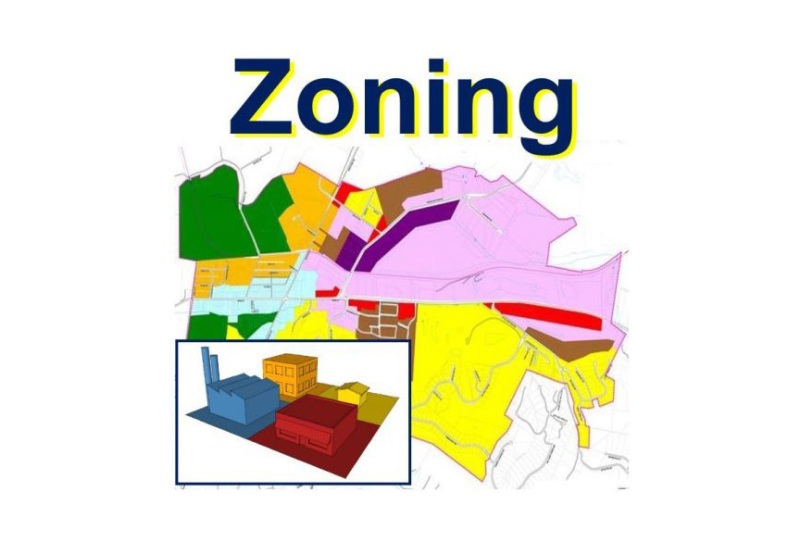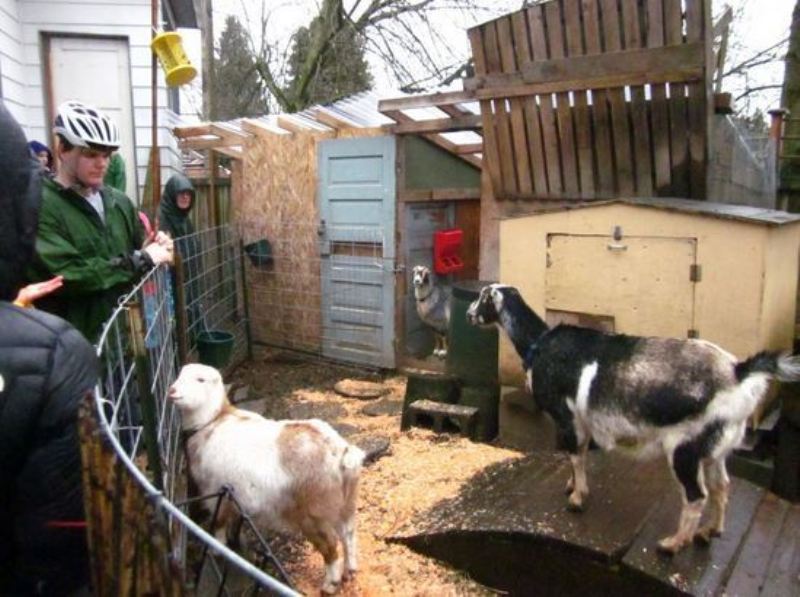Zoning is a legislative restriction on the way land can be used. Through community planning and development, zoning legislation helps local governments preserve property values and prevent the misuse of land, thus making communities as functional and safe as possible.
If zoning did not exist, a porn or gun shop would be able to open next door to a school, kindergarten or major playground, or a large supermarket might be built in a residential street.
Zoning is a legislative process that classifies privately-owned urban land or areas into different zones – industrial, commercial, residential or agricultural – according to the specified land use. Each zone has limits on its density, size of properties, types of buildings allowed, their location, what types of animals are allowed or prohibited, etc.

A zoning map of the village of Newton in Ohio, United States. Each colour tells you what can and cannot be built in that area. (Image: newtownohio.gov)
It is a technique of land-use planning – a tool of urban planning used by local authorities in all the advanced and many emerging economies.
Zonning … designating mapped zones
The word ‘zoning’ comes from the practice of designating mapped zones which regulate the design, use, form and compatibility of development. Zoning legislation is typically enacted as by-laws regarding procedures. In some nations, including Germany and Canada, the plans must adhere to regional, state or provincial planning and policy statements.
There are many different zoning types; form-based focuses on the building’s form and how it fits in (or doesn’t) with the buildings of the street, while use-based concentrates on separating land use. Some legislation focuses on a combination of the two types.
The University of Wisconsin Eau Claire gives some examples in the United States: an R-1 residential zone will probably only allow single-family detached houses, but not apartment complexes or duplexes. A C-1 commercial zone, however, will only allow certain commercial or industrial uses in one jurisdiction, while permitting a blend of housing plus businesses in another jurisdiction.

If you want to raise goats in your yard, check what the zoning laws are for your area first.
Within each general category there are more narrowly defined divisions. A residential zone may be segregated into a separate zone for detached homes on one acre, single family homes on half-an-acre, mobile homes, low-rise apartment buildings, boarding houses, high-rise apartment buildings, or institutional housing.
Industrial zones may be more narrowly defined as ‘light’, ‘heavy’ or ‘research’. Commercial zones may be divided into shopping malls, filling stations, drive-in fast food outlets, restaurants, warehouses and adult-entertainment districts.
Legislation may not be permanent
The classification of an area may not be permanent – do not assume it is set in stone and will never change.
If you are in a residential street with an empty 10-acre plot across the road, do not expect the law to always prohibit the construction of a private club for college students or a rooming house.
A change of local government can bring with it many surprises regarding zoning legislation.
Complying with local zoning legislation
If you buy a property, you must adhere to the local zoning laws. You will not, for example, be allowed to raise llamas or sheep in that area unless it is zoned for that purpose – like an agricultural zone.
If your zone does not permit the raising of goats and you want to raise them, you need to apply for an exception – commonly known as a special-use permit.
If the zoning in an area changes, those with existing properties are generally ‘grandfathered – they are allowed to continue using their property for the same purpose, even though their use might not comply with the new zoning rules.
There is more to zoning than simply the division of a city into districts and what people are allowed to build, raise and do in each zone.
It also takes into account the future growth and development of the town or city, the adequacy of its storm sewers and overall drainage, density of population, pedestrian walkways, and several other factors.
According to legal-dictionary.thefreedictionary.com, zoning is:
“The separation or division of a municipality into districts, the regulation of buildings and structures in such districts in accordance with their construction and the nature and extent of their use, and the dedication of such districts to particular uses designed to serve the General Welfare.”
The Auckland Council in New Zealand made the following comment regarding land use:
“We sort land and water into zones to plan how to use or develop land and water in different areas. We apply zoning rules in Auckland to make sure that activities and development in areas are appropriate to the local environment.”
“We look at potential effects that development or an activity might have on an area. We take into account the environment, heritage, culture, conservation and people when applying the rules.”
Video – City planning in San Francisco
This San Francisco Planning video explains why zoning is so important.

